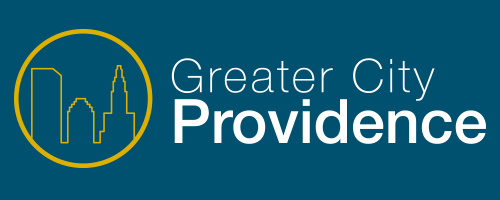This article in the current The Atlantic, by Richard Florida, is a must read for anyone who cares about American cities and how our urban and national cityscapes will change as a result of our economic difficulties. The article is a well researched and deeply logical prediction by an well known expert on how communities and regions will be altered in the near future. Will New York by ravaged by the financial collapse? How will the suburbs fare? What will drive where people choose to live? What regions win, which regions lose, and why?
If all of the big, scary words scattered across numerous pages is too daunting, the wonderful “On Point” radio show from NPR has an interview with the author where he summarizes his points (and also has an interview with Detroit’s Mayor) that you can find linked here. Whether you choose to read the article or listen to the interview, his arguments provoke a lot of thinking about what Providence will need to do to compete in the future.
In that sense, while Providence is never mentioned directly, one could hypothesize (as I do) based on Richard Florida’s priciples that certain steps will be necessary to draw creative talent (the singular resource will define the successful municipality of the future) to our city. Click below to see what I broadly deduce that might be:
What the article suggests we could do:
- Play up our “knowledge economy” strengths, as that’s what will be viable in the future America (so healthcare, science, high tech, design, and the arts for us)
- Focus on and bring together institutions that contribute to these areas (such as Brown, J&W, RISD, Lifespan, etc) to promote individual and collective growth.
- Stop competing with or comparing ourselves to Boston and instead turn 180 degrees and try to regionally integrate with it as much as possible. It (along with NYC and D.C.) forms the central hub for the region, and will do so even more in the future outlined by Richard Florida. If Boston rises, we want to rise with it… The author believes that such second-tier cities as ours need to give up the idea of being “centers” and instead focus on succeeding and thriving being, in a sense, second-tier and proud. We need find our role in the megapolis and play it up…
- Drop our provincial attitude and instead reach out and focus on building up any and all infrastructure that connects us to the regional “Bos-Wash” megapolis… This means high speed regional rail, local commuter and light rail, broadband, airport expansion, shipping growth, 95 upgrades… In short, anything that allows us to profit from, contribute to, and connect with the larger Northeast economy. Forget New England, it’s about the Northeast. Being a quaint little community off the grid is a recipe for failure…
- Somehow streamline government and make it more nimble. Per the author, the government that is most flexible and able to react to change will win the economic races of tomorrow…
- Build cool, interesting neigborhoods and streetscapes to compete for the knowledge worker of tomorrow. They’ll be able to live anywhere they want in the US (and the entire world), and you’ll have to have the civic spaces and places they’ll want to spend their time…
What the article suggests we should likely not do:
- Not spend time, energy, and effort trying to draw large companies or headquarters here… They’re increasingly going to go to the megapolis hubs (like how Citizens has a “HQ” here but most operations are elsewhere). We’ll lose those fights… We should be aiming for regional offices, distributional centers, and smaller “creative” offshoots…
- Not focus on drawing “failing” industries (such as manufacturing) or those less knowledge centered and most likely to stay in hubs (like finance) to the city. In this respect it might make more sense to, for example, give more of the 195 land to our creative non-profits and universities (like J&W) and let the for-profit offshoots and supportive industries fill in the rest over time…
- The city should not focus on home ownership (and the industries built up around it) and actually promote more attractive renting options, especially downtown. The population of the future will be more mobile than today, and they’ll want places to live.
What do you think?




Like a government which doesn’t think the response to having to bail out a failed faux-sino is to build a real casino.
I’d like to see Rhode island revamp the way we actually legislate things in order to make things more nimble. Imagine if every law had to be renewed every five years or it would ‘age-out’ of the books. Not only would we keep the number of laws down, but ones that weren’t important would just stop mattering. Reducing the amount of legislation on the books is a great way to keep government up-to-date with the times and to make things like zoning and permitting easier.
Also, another benefit might be to keep the legislature busy renewing laws that matter instead of layering on more dumb ones. I can imagine it now, “I’d love to see a casino, but if I don’t get back to chamber before noon, assault rifles will become legal.”
For my money, Tom Ashbrook is the best broadcaster of his generation, bar none.
I wonder how we go about this in the current economic climate. I think when people think vibrant neighborhoods, they think retail. Undoubtedly we will see contraction in our neighborhood retail environments before we emerge from this recession. So what besides retail makes neighborhoods and streetscapes active and vibrant?
In crisis there is opportunity. Some stores won’t be able to make it, but others will launch. I think retail does make a neighborhood vibrant because it keeps the street busy all day and into the evening.
I guess too, things like public spaces and parks can make a neighborhood vibrant providing there is quality programing in those spaces…
If by retail, you also include bars and restaurants, retail isn’t on the decline. The neighborhood establishments are still pretty active.
However, retail alone does not make a neighborhood vibrant. It’s anything that gets people out of their houses and cars and onto the street. Nice parks and public spaces that make people want to use them and neighborhood activities (cleanups, caroling, block parties, etc) can make a neighborhood vibrant without the need for retail.